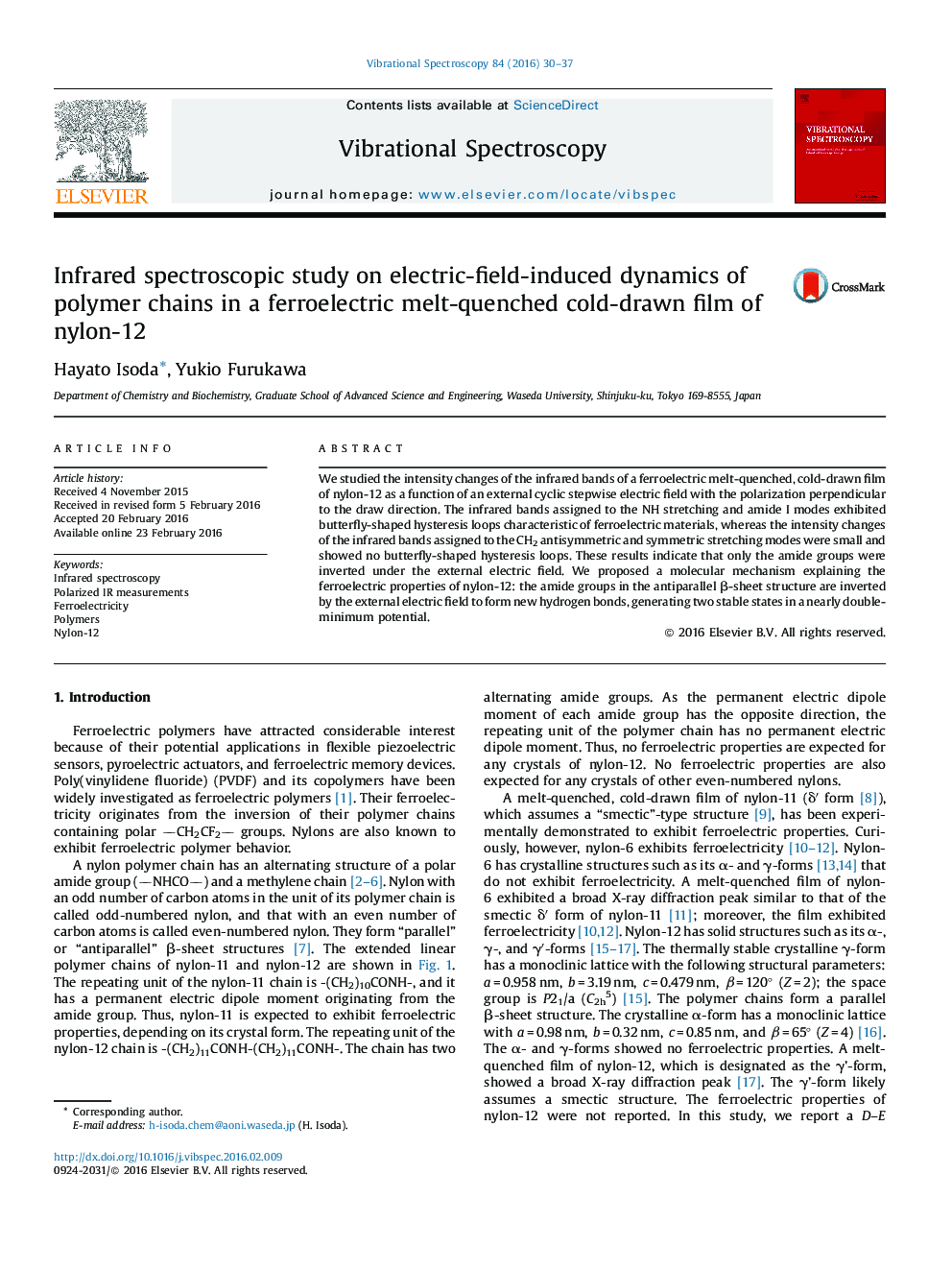| Article ID | Journal | Published Year | Pages | File Type |
|---|---|---|---|---|
| 7691056 | Vibrational Spectroscopy | 2016 | 8 Pages |
Abstract
We studied the intensity changes of the infrared bands of a ferroelectric melt-quenched, cold-drawn film of nylon-12 as a function of an external cyclic stepwise electric field with the polarization perpendicular to the draw direction. The infrared bands assigned to the NH stretching and amide I modes exhibited butterfly-shaped hysteresis loops characteristic of ferroelectric materials, whereas the intensity changes of the infrared bands assigned to the CH2 antisymmetric and symmetric stretching modes were small and showed no butterfly-shaped hysteresis loops. These results indicate that only the amide groups were inverted under the external electric field. We proposed a molecular mechanism explaining the ferroelectric properties of nylon-12: the amide groups in the antiparallel β-sheet structure are inverted by the external electric field to form new hydrogen bonds, generating two stable states in a nearly double-minimum potential.
Related Topics
Physical Sciences and Engineering
Chemistry
Analytical Chemistry
Authors
Hayato Isoda, Yukio Furukawa,
